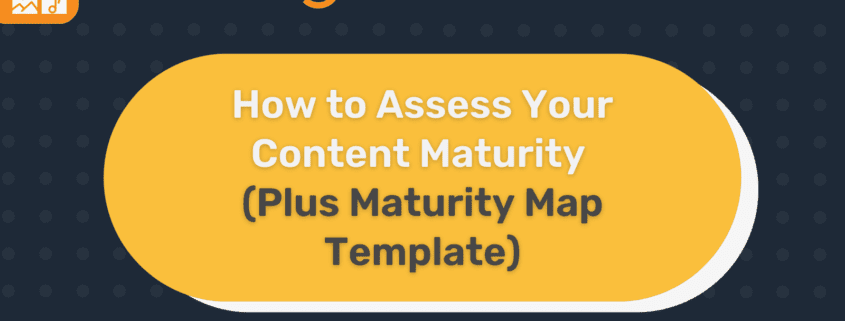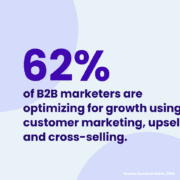How to Assess Your Content Maturity (Plus Maturity Map Template)

It’s hard to believe that it’s been 14 years since Seth Godin said, “Content marketing is all the marketing left.” While some B2B companies are well on their way to building mature content marketing practices, the pandemic found others on their backfoot when they could no longer rely on in-person events for sales.
The Content Marketing Institute and Marketing Profs found that 43% of marketers familiar with company spending say their 2021 content marketing budgets were higher. And two-thirds of this group (66%) expect increases in the 2022 budget. Among the investment areas in 2022, video, events (hybrid, digital, in-person), and owned-media assets topped the areas of spending.
If you’re considering where you’re even going to start, it’s time to assess where you are using a Content Marketing Maturity Map.
What is a Content Marketing Maturity Map?
Before our strategists begin creating or refining a content marketing plan for our B2B clients, we typically start by analyzing the team’s work using a repeatable construct that we call a Content Marketing Maturity Map.
We have plotted out five stages of maturity against the ideal state for B2B companies. We have indicated the conditions, circumstances, features, and initiatives that should be present at that step in the continuum. Based on present-day realities, we then plot where the client currently lies and do the same for the competitive set.
How Can I Gauge the Maturity of Our Brand’s Content?
Look no further. We’ve done the leg work and I am providing you with the B2B Content Marketing Maturity Scorecard as of May 2022. We are continually making updates to this document as the goalposts shift.
Use this rubric to assess your program against key competitors or even industry leaders. It is meant to be an objective ranking and highlights areas in your practice that can expand. Keep in mind that some inputs may not be relevant to your business. Remove those as you score, but ensure that you’ve thought through all of the use cases before doing so.
Tips for Using the Convince & Convert Content Maturity Assessment
Here are some other tips to using the rubric:
- Be honest – Giving yourself points for half-baked work won’t get you anywhere. This is meant to provide a roadmap for moving forward and your starting point should accurately reflect where you are.
- Internal vs. external inputs – Some inputs can be observed across competitors and some inputs that are more process-driven can’t be observed. Use the external inputs to score yourself against the competitors and the internal inputs as an additional layer of the strategies and tactics to consider as focus areas on your roadmap.
- Schedule a re-assessment – Typically, we do this every six months to a year for our clients to see how we are making progress and the updates we should make because of landscape changes.
Want to give it a shot? Check out the template here.
The post How to Assess Your Content Maturity (Plus Maturity Map Template) appeared first on Convince & Convert.











